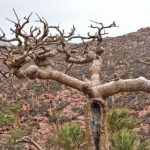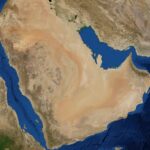Long ago, wise men in Eastern Arabia noticed a beautiful star burning brightly in the night sky and set out on an adventure to see where it would lead them. At the end of their journey, they found Jesus and presented him with costly gifts – one of which was frankincense.

Today frankincense trees still bloom, particularly in the southern region of the Arabian Peninsula. At the center of this region is a city that is home to 6 unreached people groups – each with their own specific language or dialect, with unique customs and traditions, divided into tribes and families. As different as each group is, they hold certain things in common – their unifying faith in Islam, their abiding love of camels, and the daily use of frankincense.
Every day after evening prayers, the city is permeated by with the sweet smell of frankincense as families heat it in burners and carry it throughout their homes. They do it to mask the smells of a hot day, to “disinfect” the house from bacteria, and to scare away any demons that may have crept into their houses from the night before. They offer this local treasure day after day as recognition of a felt need for cleansing, healing, and deliverance.

Wise men of Arabia once offered Jesus their treasures when the journey to meet Him in Bethlehem. Today, He is offering them the lasting healing, cleansing, and deliverance they seek.
How to Pray
- Pray that the message of Jesus would find his way into the hearts and lives of those living in the land where frankincense grows.
- Pray that the aroma of Christ would emanate from the lives of believers living in this region.
- Pray for wise men and women in the Arabian Peninsula – that in their wisdom, they would seek the way of Jesus.
